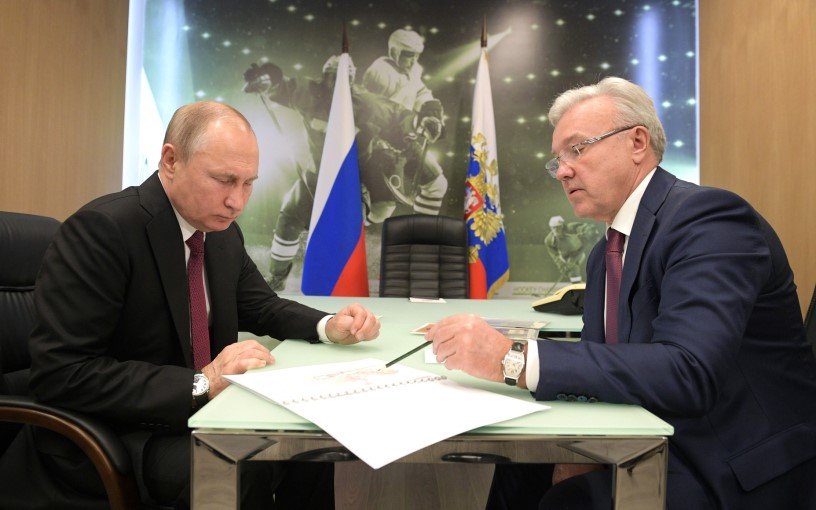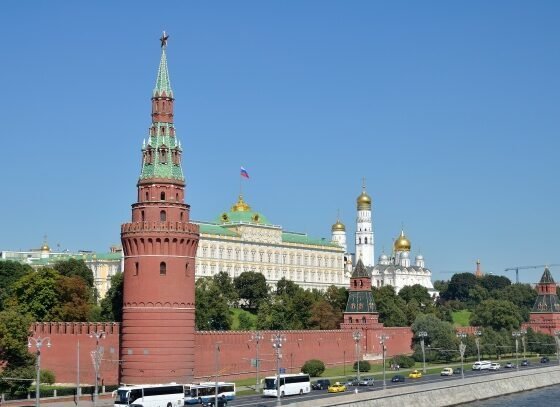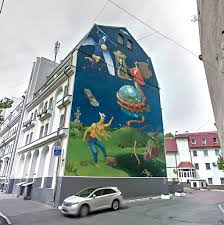(PONARS Eurasia Policy Memo) Russia’s regional administrations tend to be overlooked as a toothless part of the system, lacking any real responsibility or power. While Moscow has certainly curbed governors’ autonomy under President Vladimir Putin’s rule, several important events over the past few months, such as the COVID-19 pandemic and amendments to the constitution, have brought the importance of regional governors back to the fore. The recent detention of Sergei Furgal, governor of the Far Eastern region of Khabarovsk, on murder charges—immediately after his region failed to ensure desired support for the constitutional amendment—has also refocused public attention onto governors’ performances.
The way in which these regional governors choose to counter the virus, as well as ensuring voter turnout for the constitutional vote, will likely provide an opportunity for governors flagging in the polls to improve their performance ratings. But governors responsible for political scandals, who struggle to stimulate the local economy, and fail to take responsibility for their own actions, might find themselves in trouble in the coming months. This memo unpacks some of the more recent governor scandals in further-flung regions such as the Arctic and Far East, to determine what this might mean for regional stability ahead of the imminent regional elections in September 2020, as well as the State Duma elections scheduled for 2021.
Some governors might be able to redeem previously poor performances by guaranteeing strong public support for Putin during election processes, while those with strong track records may be dismissed if they are unable to do so. Governors’ handling of the pandemic is also likely to be used as an excuse to oust unpopular officials ahead of the upcoming elections. As governors try to distance themselves from an increasingly toxic United Russia party in these elections, many governors are likely to run as ‘independent’ candidates, but are unlikely to be permitted any real autonomy.
The Constitution and Coronavirus
Putin’s administration has strengthened the federal center in Moscow, and consolidated power in the Kremlin, removing what little autonomy regional governors had accrued under Boris Yeltsin in the 1990s. Much has been made of how Russia’s recent constitutional amendments—passed in a nationwide vote ending on July 1—to reset Putin’s presidential term limit count. While this is important, an interesting change that is sometimes overlooked might indicate a shift in responsibilities for regional governors.
One of the amendments refers to updating the remit of the State Council. The State Council is a largely ineffective body that includes representatives from the regional government and national leaders of autonomous republics. Under the new amendments, the Council might be given new powers to set directives for Russia’s foreign policy approaches, and priority areas for socio-economic development. Although this is unlikely to devolve any actual power to regional governors, it could mean a more important role in determining some of Russia’s future policies. Individuals selected to head these regions are likely to come under increased scrutiny from Moscow, and their behavior—particularly their loyalty— likely held to a higher standard.
One of the earliest casualties of the constitutional amendments was Sergei Furgal, governor of Khabarovsk. In high-profile events that prompted consternation and over a week of protests in the city, Furgal, from the Liberal Democratic Party of Russia (LDPR), was charged with murder and participation in an organized crime gang for alleged actions during the early 2000s. The charges were leveled against him soon after his region reported relatively very low levels of support for the amendments in the July 1 nationwide vote. But the detention was unexpected—although he was a member of a (nominal) opposition party, Furgal’s tenure as governor was smooth, he was well-liked locally, and had not gone against any of United Russia’s directives for the region. This indicates the Kremlin’s growing intolerance for political dissent against the amendments, notwithstanding strong public support for the governor, highlighting the Kremlin’s growing detachment from public opinion.
Russia’s approach to the COVID-19 pandemic also highlighted the shift in governors’ responsibilities. Putin’s strategy has been to delegate much of the day-to-day responsibility for containing the virus to regional governors, who lack the experience, infrastructure, or resources to carry out Moscow’s orders. In his address to the nation on April 2, Putin granted the regions special powers to act in the way they saw fit in response to the outbreak. This meant that while some regions like Moscow were in a state of lockdown, other regions such as Altay introduced relatively few quarantine measures, and eased restrictions at different times. Regional airports and flights also remained operational with citizens free to travel internally, which likely spread the virus around the country.
The lack of direction from Moscow meant that governors were forced to improvise, but the top-down centralised system has made it difficult for them to develop their own autonomy and power bases, or independence about how regional budgets— especially those allocated to counter the virus—should be used. The pandemic laid bare some of the political system’s structural weaknesses, but it was also a test for regional governors to prove their worth, ahead of imminent regional and federal elections.
Laying the Groundwork for Elections
Governors tend to be rotated just before major political events, particularly elections. In 2017, ahead of the presidential elections in March 2018, more than 20 heads of regions were dismissed, one of the largest mass rotations since Putin came to power. This was a calculated move, in which governors who are unable to boost their region’s socio-economic conditions, who fail to gain sufficient public approval, or who had created tensions among the regional elite, were let go.
Ahead of the September 2020 gubernatorial elections and 2021 State Duma election, governors’ performances will be appraised and ranked against each other. Four different agencies—only one of which is state-controlled—put together rankings for regional governors, which are published online. Each governor is evaluated based on a range of formal and informal performance criteria, such as public confidence in them, or the degree to which they are loyal to Putin and United Russia (UR). One of the governors’ responsibilities is to ensure high voter turnout for Putin and the UR party during elections. They are also expected to maintain social and economic stability in their regions, and avoid corruption scandals that might bring the region into disrepute.
The degree to which governors are able to manage the pandemic—by preventing many deaths, or avoiding scandals around the distribution of the regional budget—will be accounted for in their performance rankings. Governors performing poorly before the virus broke out may now have an opportunity to redeem themselves, whereas popular governors who appeared secure may be unseated.
But sometimes, governors’ historical performance may appear unconnected to whether they retain their job, and there have been several high-profile rotations in the last few months illustrating this occasionally puzzling development.
Frosty Communications in the Arctic
Scandals that ignite public ire and damage confidence in the regional administration can render a governor’s position untenable.
One of the most recent incidents occurred in May 2020, over an oil spill near the northern city of Norilsk. Melting permafrost beneath an already corroding oil tank owned by Nornickel—a large metallurgical company—caused a leak of around 17,000 tons of diesel fuel, beyond the 5,000-ton threshold that would qualify it as a federal disaster. The spill had a serious impact on the environment of the Taimyr peninsula, with officials maintaining that the cleanup operation would take more than six months.
A key issue was the poor communication between the plant responsible for the spill, various federal emergency agencies, regional governor Alexander Uss, and President Putin. Putin was not directly informed about the spill—one of his deputies noticed social media and local news reports and passed them along. Regional officials and emergency agencies had known about the spill much earlier than they later claimed. But Governor Uss failed to offer aid to those addressing the incident, shifted the blame onto others when Putin confronted him, and did not attempt to notify the president about the incident. Putin personally expressed his dissatisfaction with how the region handled this.
This has laid bare a system in which none of the agencies or regional administrations were willing to take responsibility—it was only after Putin’s intervention that decisive action was taken. Although the President has been content to leave the daily running of the country to his regional administrations, few governors have adequate crisis management processes in place, and the systems and resources in place to support them are insufficient. Governor Uss’s position may be significantly impacted by his communication failures, and this is likely to count against him in the upcoming elections.
Kamchatka’s Coronavirus Pretext
In other regions, such as the Far Eastern region of Kamchatka, the governor’s handling of the pandemic might be used as a pretext to dismiss poor performers.
Kamchatka’s governor, Vladimir Ilyukhin, was appointed in 2011 by Medvedev and has held office for two terms. But he was forced to resign in April 2020, soon after consumer rights watchdog Rospotrebnadzor criticized the way that he had dealt with the pandemic, maintaining that Kamchatka had not conducted sufficient virus tests. The timing of Ilyukhin’s resignation—one day after the criticism against him—seemed to confirm that it was linked to his handling of the crisis. But the true picture is more complicated.
Despite Rospotrebnadzor’s claims, the sparsely populated Kamchatka region reported few cases of the virus, and around 40 deaths. More significantly, Ilyukhin is thought to have had difficult relations with Yuri Trutnev, a powerful Putin ally and the presidential envoy to the Far East. Trutnev had recently criticized Ilyukhin’s economic policies and urged him to overhaul his entire team. Ilyukhin’s administration was notorious for its repeated high-profile corruption scandals, with many members of his team—including his personal protégés—convicted in criminal cases. There were also allegations of voting fraud in February 2020, shortly after he announced that he would be running in the September election, with falsified ballots supporting his nomination.
Ilyukhin’s handling of the pandemic has likely been used as a ruse to oust him, following years of behavior that tested Moscow’s patience.
Humiliation in Chuvashia
One of the most recent rotations was the dismissal in January of Mikhail Ignatiev, the leader of Chuvashia, a region to the east of Moscow.
Ignatiev had a mixed political career filled with numerous gaffes, such as calling former prime minister Dmitry Medvedev by the wrong first name and patronymic. Ignatiev also held controversial views, advocating “wiping out” bloggers and journalists who wrote positive stories about life in Europe and the US. But despite these blunders, he remained in power for almost ten years.
Then, in a widely publicized incident that went viral on social media, Ignatiev humiliated a fireman, forcing him to publicly jump for the keys to a new fire engine. Although Ignatiev protested, maintaining that he and the fireman were old friends, this appeared to be the final straw, as blue-collar workers like the emergency services represent Putin’s core support base. Ignatiev was removed from office, and Putin then formally dismissed him, citing a lack of confidence—the president has the power to declare a loss of confidence in state officials, if they are guilty of corrupt practices or engaged in a conflict of interest. Ignatiev’s behavior then became increasingly erratic, and he attempted to sue Putin, but he died of pneumonia before the judges could hear his case.
Even long-standing governors are not untouchable, and Putin’s tolerance for mistakes has a limit.
Gaffes in Krasnodar
But sometimes there is not always a clear link between governors’ actions and whether they retain their jobs.
Veniamin Kondratyev, governor of the southern Krasnodar region, was embroiled in a scandal in October 2019, when a video surfaced on social media of a conversation between him and his deputy, in which they controversially suggested that “United Russia [was] dead.” Kondratyev and his deputy maintained the discussion was taken out of context, but many political observers in Russia believed this episode could spell the end of his political career, or at least his tenure as governor.
However, it appears not to be the case. Putin has publicly offered Kondratyev his support—widely viewed as a determinant of success—in the September 2020 gubernatorial elections. He also deemed Kondratyev’s work as governor satisfactory; his response to the pandemic is also likely to work in his favor, as Krasnodar was one of the first to introduce quarantine measures, which has kept the infection rate low.
It appears that a governor’s response to the virus might be sufficient to redeem them, even if they have fallen foul of the authorities in the past.
Toxic United Russia
This series of scandals and rotations is likely to herald the usual rotations of personnel ahead of major elections.[1] Governors’ corrupt, erratic or unpredictable behavior that was previously tolerated is now likely to be scrutinized by Moscow, and used as a pretext to remove them from office, ensuring that pliant regional heads loyal to United Russia remain in control.
But United Russia’s reputation has taken a hit. Public trust in the party in 2019 fell to a 14-year minimum of around 32 percent, which at the time prompted many UR contenders for the Moscow City Duma elections to run as independent, self-nominated candidates, and which ultimately allowed opposition elements to gain footholds on the regional council. The precedent was set by political processes in the Far East; in a bid to distance himself from an increasingly toxic party, in the 2018 regional elections, former UR member Oleg Kozhemyako ran as an independent candidate in the Primorsky region and won, styling himself as a defender of locals’ rights who was not reliant on Moscow.
The party is highly concerned that the upcoming elections could see a repeat of this behavior. Governor Kondratyev from Krasnodar is running as a non-partisan contender for the elections, despite United Russia urging him to join the party, to little avail; Sergei Sitnikov, governor of Kostroma region, has followed suit.
Conclusion
This, alongside some of the constitutional amendments that could see governors having greater autonomy over domestic and foreign policies, will make it more pressing for Moscow to ensure that UR-loyal governors enter office in the coming months. Without intervention from Moscow, there is a risk that non-partisan contenders could break up some of United Russia’s base in certain regions, cost it more public confidence, and weaken its control over regional administrations.
Ultimately, the most important benchmark of governors’ loyalty is the extent to which they can guarantee public support for President Putin. Even if some governors are allowed a longer leash to run political campaigns as independents, it is unlikely that their fundamental policies will be permitted to diverge from the UR party line. Many of the political changes taking place may appear to offer autonomy to governors, but in reality, it is always with the ultimate goal of serving the federal center.
Emily Ferris is a Research Fellow, Russia and Eurasia, at the Royal United Services Institute (RUSI), United Kingdom.
[PDF]
[1] It may too late for replacements to get on the ballot in regions holding elections this September.
Homepage image credit.











